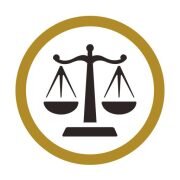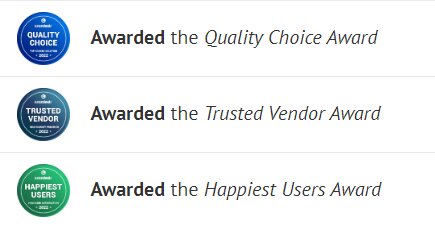Best Labor Law Lawyers in Durban
Share your needs with us, get contacted by law firms.
Free. Takes 2 min.
List of the best lawyers in Durban, South Africa
About Labor Law in Durban, South Africa
Labor Law in Durban, South Africa, is designed to govern the relationship between employers and employees, ensuring fair treatment, ethical work practices, and the protection of workers' rights. It encompasses various aspects such as employment contracts, wages, working hours, dispute resolutions, and workplace safety. South Africa's labor laws are primarily guided by national legislation such as the Labour Relations Act, the Basic Conditions of Employment Act, and the Employment Equity Act, which aim to promote economic development, social justice, and equality in the workplace.
Why You May Need a Lawyer
There are several scenarios where individuals or businesses might require legal assistance in the field of labor law:
- **Employment Contract Disputes:** Clarifying terms or handling breaches of contract.
- **Unfair Dismissals:** Seeking justice for wrongful termination or unfair labor practices.
- **Workplace Harassment:** Addressing issues related to discrimination or harassment in the workplace.
- **Wage Disputes:** Ensuring fair payment for work done under legal standards.
- **Collective Bargaining:** Navigating negotiations between employers and trade unions.
- **Compliance with Labor Laws:** Helping businesses comply with local labor regulations and avoiding legal pitfalls.
Local Laws Overview
In Durban, and South Africa as a whole, several key legal frameworks govern labor relations:
- **The Labour Relations Act (LRA):** Focuses on fair treatment within the workplace, outlining processes for collective bargaining, strikes, and dispute resolution.
- **The Basic Conditions of Employment Act (BCEA):** Sets minimum standards for workplace conditions, including hours of work, leave, and remuneration.
- **The Employment Equity Act:** Aims to promote equality, eliminate unfair discrimination, and achieve fair representation in the workplace.
- **Occupational Health and Safety Act:** Ensures the safety and health of workers by providing guidelines on maintaining a safe work environment.
- **Skills Development Act:** Encourages employers to develop the skill sets of their workforce.
Frequently Asked Questions
What is unfair dismissal, and how can I challenge it?
Unfair dismissal occurs when an employee is terminated for unfair reasons or without the proper procedures being followed. You can challenge it by approaching the Commission for Conciliation, Mediation, and Arbitration (CCMA) for mediation and possibly arbitration.
What should be included in an employment contract?
An employment contract typically lists job duties, salary, work hours, leave entitlements, termination conditions, and other pertinent conditions of employment.
How are labor disputes resolved in Durban?
Labor disputes in Durban are often resolved through the CCMA, which offers services such as conciliation, mediation, and arbitration to help settle disputes outside the court system.
What is the minimum wage in Durban?
The national minimum wage for South Africa is set by the government and is applicable in Durban. As of the latest update, it is essential to check the current rate, as it is subject to periodic reviews.
Can I be fired without notice in Durban?
Employers must generally provide notice according to the terms specified in the employment contract or as per the Basic Conditions of Employment Act unless the dismissal is due to gross misconduct.
What rights do I have if I face discrimination at work?
Employees are protected from discrimination by the Employment Equity Act. If you face discrimination, you can report it to your company's HR department or escalate it to the CCMA or the Labor Court if necessary.
Is it legal to strike in Durban?
Yes, but strikes must meet the specific requirements outlined by labor laws, including engaging in initial rounds of negotiation and serving notice before any legal strike action.
How can I ensure my workplace is safe?
Employers must follow guidelines set by the Occupational Health and Safety Act. Employees have the right to request safety audits and report unsafe conditions to the Department of Employment and Labour.
What is collective bargaining?
Collective bargaining is the process where employers and trade unions negotiate terms of employment, including wages, working conditions, and benefits to arrive at collective agreements.
What types of leave are employees entitled to?
According to the Basic Conditions of Employment Act, employees may be entitled to annual leave, sick leave, maternity leave, family responsibility leave, and other types of leave depending on their contract.
Additional Resources
For more information on labor laws in Durban, you can contact the following bodies:
- **Department of Employment and Labour:** Provides guidance on labor laws and workplace rights.
- **Commission for Conciliation, Mediation, and Arbitration (CCMA):** Assists in resolving labor disputes.
- **South African Labour Guide:** Offers comprehensive information on labor legislation.
- **Law Society of South Africa:** Can help find qualified labor law attorneys.
Next Steps
If you need legal assistance regarding labor law issues in Durban, consider the following:
- **Consult an Experienced Attorney:** Seek advice from a lawyer specialized in labor law to discuss your case.
- **Gather Documentation:** Collect all relevant employment records, contracts, and correspondence related to your issue.
- **Engage with the CCMA:** For disputes, you may initiate proceedings with the CCMA to explore resolution options.
- **Know Your Rights:** Familiarize yourself with your rights as an employee or employer under current labor laws.
Lawzana helps you find the best lawyers and law firms in Durban through a curated and pre-screened list of qualified legal professionals. Our platform offers rankings and detailed profiles of attorneys and law firms, allowing you to compare based on practice areas, including Labor Law, experience, and client feedback.
Each profile includes a description of the firm's areas of practice, client reviews, team members and partners, year of establishment, spoken languages, office locations, contact information, social media presence, and any published articles or resources. Most firms on our platform speak English and are experienced in both local and international legal matters.
Get a quote from top-rated law firms in Durban, South Africa — quickly, securely, and without unnecessary hassle.
Disclaimer:
The information provided on this page is for general informational purposes only and does not constitute legal advice. While we strive to ensure the accuracy and relevance of the content, legal information may change over time, and interpretations of the law can vary. You should always consult with a qualified legal professional for advice specific to your situation.
We disclaim all liability for actions taken or not taken based on the content of this page. If you believe any information is incorrect or outdated, please contact us, and we will review and update it where appropriate.
















